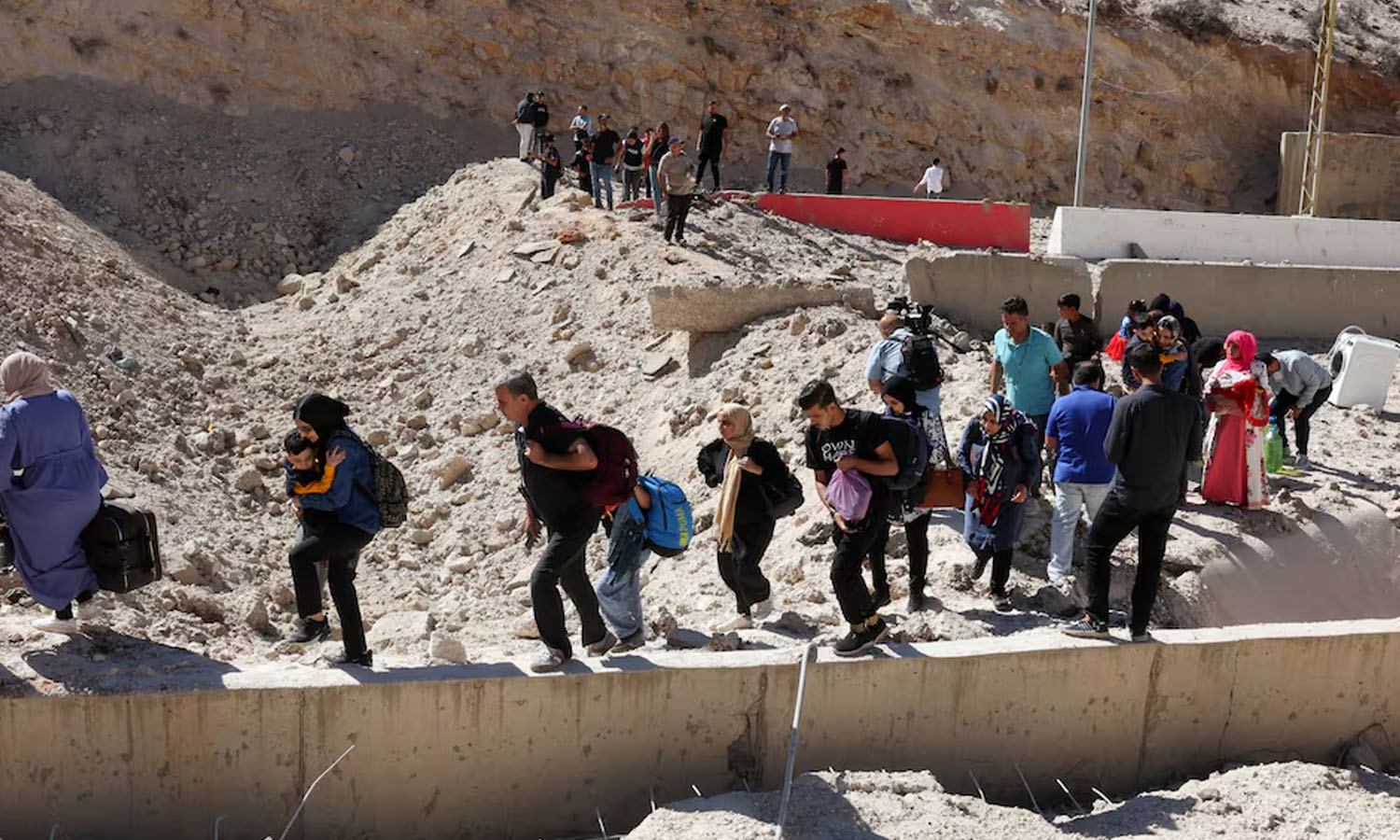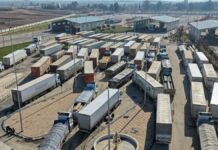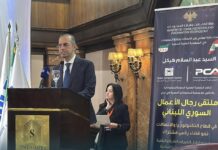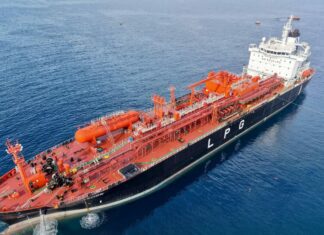
As thousands flee from Israel’s escalating attacks on Lebanon, the Assad regime is using the humanitarian crisis to seek international support and sanctions relief. The regime’s political opponents argue it is leveraging the influx of Lebanese expatriates and Syrian refugees for financial gain and legitimacy as Syria’s economy remains in ruins.
The Assad regime has presented its response as a coordinated humanitarian effort. Louay Kharita, the regime’s Minister of Local Administration and head of the Supreme Relief Committee, recently met with Adam Abdel Mawla, the UN’s coordinator for development in Syria, to discuss humanitarian initiatives. These included setting up refugee shelters and “early recovery” projects aimed at self-sufficiency.
The pro-regime Al-Watan newspaper reported that Kharita emphasized Assad’s efforts to “coordinate with UN organizations” to secure aid for those arriving from Lebanon. According to the regime, 17 shelters have opened across five regions, housing over 4,800 individuals, mainly Lebanese families. Assad’s regime claims these actions demonstrate its humanitarian commitment, even as it seeks international assistance.
However, analysts, like Jsoor for Studies, view the regime’s response as a way to shift focus from Syria’s ongoing economic collapse, which has left 90% of the population below the poverty line. Years of war, compounded by internal corruption, have pushed Syria into severe poverty. Badr Jamous, head of the Syrian Negotiating Commission (SNC), an opposition group with ties to the revolution, says this economic crisis is largely due to “the depletion of resources to fund Assad’s war efforts.”
During Syria’s 14-year conflict, regime funds have primarily supported military campaigns, with little directed toward civilian needs. According to Jamous, “poverty in Syria has become endemic, with millions unable to afford daily necessities.” The regime’s exploitative economic policies have exacerbated this, diverting resources to state loyalists and black-market activities while leaving basic services like education, healthcare, and infrastructure in shambles.
The Assad regime has called for international support, framing itself as a humanitarian responder amid regional instability. With nearly 425,000 people reportedly crossing from Lebanon into Syria since hostilities began, Damascus argues it needs additional resources to manage the crisis. Critics contend, however, that the regime is using the refugee influx to pressure foreign governments to lift sanctions, which the regime blames for Syria’s suffering.
Meanwhile, the UN and local agencies are cautious, recognizing the risk of aid being misused. Abdel Mawla of the UN emphasized the importance of “early recovery plans” in Syria to foster self-reliance, though concerns remain over whether the regime will allow these resources to reach those who need them most.
Jamous and other critics argue that Syria’s economic decay is rooted in a pattern of state-led corruption and deliberate neglect of public welfare. The Syrian lira’s devaluation has compounded inflation, making basic goods and services unaffordable for most in Assad-controlled areas. In a statement marking the International Day for the Eradication of Poverty, Jamous described how systemic corruption has impoverished Syrians, with state resources funneled toward Assad’s supporters at the expense of civilians.
Syrians face mass unemployment, particularly young people, as small businesses and factories are destroyed. “The destruction of the education, healthcare, and labor sectors has left little hope for Syria’s recovery,” said Jamous. Despite years of international aid, the regime has stolen millions and directed little of it toward sustainable development, he added.
The SNC maintains that a political solution, along with international support, is essential to Syria’s recovery. Jamous underscored the need for reform, emphasizing that “real development and poverty reduction require peace, security, and respect for human rights.”
As Syrians and Lebanese refugees seek shelter in Syria, the international community faces a critical decision: whether to continue supporting a regime with a history of aid theft or find new ways to reach the civilians in urgent need.








